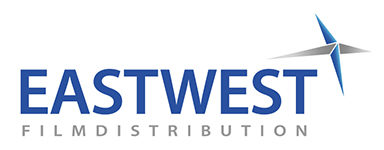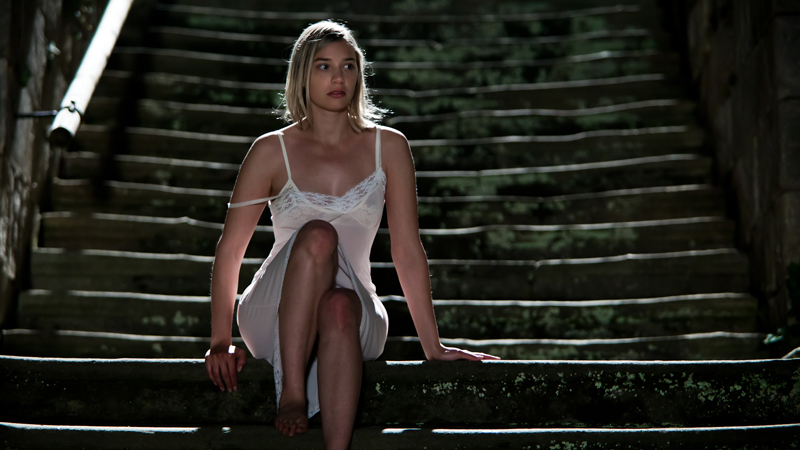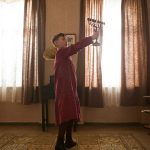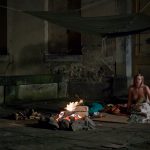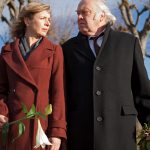Original Title: Bittere Kirschen
Synopsis
After her mother’s death, Lena decides to quit her acting career and returns to her small hometown in Germany. There, she is reunited with her boyfriend who wants to marry her. But she’s afraid of the commitment. She also meets Julius, her mother’s childhood friend who starts telling her about Auschwitz in 1944, “where it all began”, as her mother used to say. Willing to find answers to the questions she was never able to ask her mother, Lena decides to go to Poland. Joined by Julius and Father Richard Franzen, a priest who falls in love with her, Lena’s trip through unknown Polish landscapes becomes a journey into the past.
Technical Information
2011; Germany; Drama, Road-movie; 107 minutes; HDCAM-SR; 1:1.77 (16:9); Stereo; Original Language: German; Subtitles: English
DIRECTOR
Didi Danquart
WRITER
Didi Danquart
D.O.P.
Johann Feindt
EDITOR
Silke Botsch
PRODUCTION COMPANY
noirfilm Filmproduktion
CO-PRODUCER
ZDF
PRODUCTION DESIGN:
Myrna Drews
COSTUMES:
Andrea Schein
IN COLLABORATION WITH:
ARTE Germany
Magdalena Behsler (Lena)
Anna Stieblich
Julius Dahlmann
Martin Lüttge
Father Richard Franzens
Wolfram Koch
Ludwig
Roland Kukulis
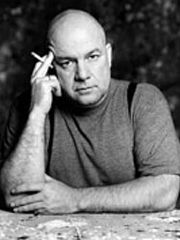
DIDI DANQUART
Born in 1955 in Singen (Hohentwiel). He studied psychology and sociology in Freiburg and he was founding member of the “Freiburg’s Media Factory” – a political film collective, which carried on several documentary projects. Since 1978 Didi Danquart was very active in the area of documentary films and very successful with “Wundbrand”, which he shot during the civil war in Bosnia in 1993. His first feature film was “Bohai Bohau”, which he shot in 1995. Didi also gained experience as theatre director during his years at several theatre companies in Germany. However, ever since he’s working as director, writer and producer (co-founder of NOIRFILM) and is teaching film at the “Academy of Art and Design” in Karlsruhe. “The Path to the Past” is based on the book “Lena’s Love” by Judith Kuckart.
Director’s Note
“Forgetting is a privilege of the dead”, wrote Heiner Müller in his text “Mommsen’s Block” (1993), as a philosophical reflection on the human, about all dictatorships and across other social formations. Accordingly, the remembrance is a privilege of the living. When in 2007 the author Judith Kuckart offered me to adapt her novel Lena’s love, I discovered in her book both ideas of privilege, of the dead and the living. The challenge was: how to visualize the theoretical concept of memory, to seek only the language? Watching again the great movie “Wild Strawberries” by Ingmar Bergman with its character Isak Borg, an ancient and malignant stubborn professor of medicine, I saw the reflection of one of my main characters, Julius Dahlman. Surprisingly, this old film helped me enormously to find the artistic access for today’s implementation of Kuckart’s story and motivated me to find my own way to tell a mythical road movie in which the fates of three individuals fuse in the memory and the actual time. My film is therefore a tribute to the great master of mythological films. The original German title BITTERE KIRSCHEN (Bitter Cherries) is a tribute to the Bergman’s title.
PATH TO THE PAST is the last episode of my trilogy about human condition, after “Viejud Levi” (1999) and “Offset” (2006). Characterized by a very personal experience in my life and the social stigmatization of people based on their provenance, my films are a rebellion against the collective displacement, the social disasters and the breaking up of population’s norms. The social expectations are sometimes improper: the children of Nazi perpetrators can also be victims of Fascism; a priest – despite celibacy – can also have erotic feelings and cherish women. The human condition is generally referred to the condition of the humans and the nature of man. In “PATH TO THE PAST” I let the poetic images speak when no words are needed and used a language that classifies itself in the power of nature, without being too far from everyday language. For this cinematic journey, the great actors embody some archetypes, they are committed to themselves without neglecting their dialogue. That’s why my film is a creation, that reveals itself only in its complex entity, which overrides the classical dramaturgy (as a cinematographic work). The language merges in the images to create a mythology of life and death. “THE PATH TO THE PAST” throws new questions until the end of the story without answering them explicitly.
Selective Filmography
Feature Film
2013 Das letzte Wort
2006 Offset
1999 Viehjud Levi
1995 Lemberg – Geöffnete Stadt
1995 Bohai, Bohau
1994 Wundbrand
1992 The Pannwitz Stare
TV Series
2009 SOKO Stuttgart
2012
Oct 19 – Nov 02
May 02 – 06
2011
Oct 25 – 30
Albrecht Behmel
Path to the Past is a quiet, complex and challenging film that doesn’t show itself to the audience immediately and whose allusions to classic and pop culture complement in a humorous and melancholic way.
Filmkritik Online
A surreal-real road movie. […] The social embedding of the protagonists is introduced through artistic manipulation. Their relationships and attitudes is arranged in an authentic and discreet way. The level of time and place, present and past is mixed up. The protagonists are confronted with people from former lifetimes and memories become real. […] Told in an epic way, the script editors allow the story to develop. […] Thanks to the great cast, the movie is even more impressive. […] A road movie worth seeing.
KinoStart
70 years after the end of World War II the question of how to deal with the past remains a key issue. Traveling through both history and personal stories, the film takes a lot of risks, somewhere between surrealistic elements and classical drama, in order to understand how a journey to the past can lead to a meaningful future.
